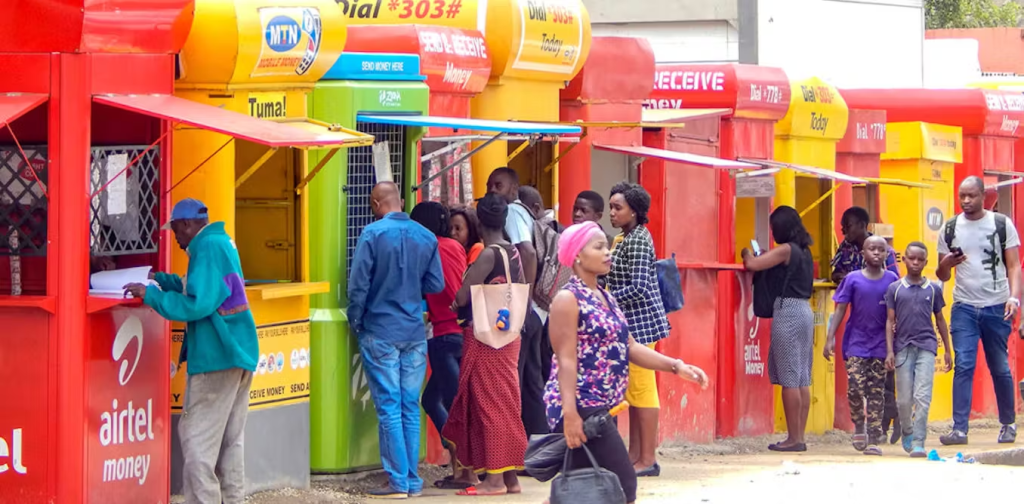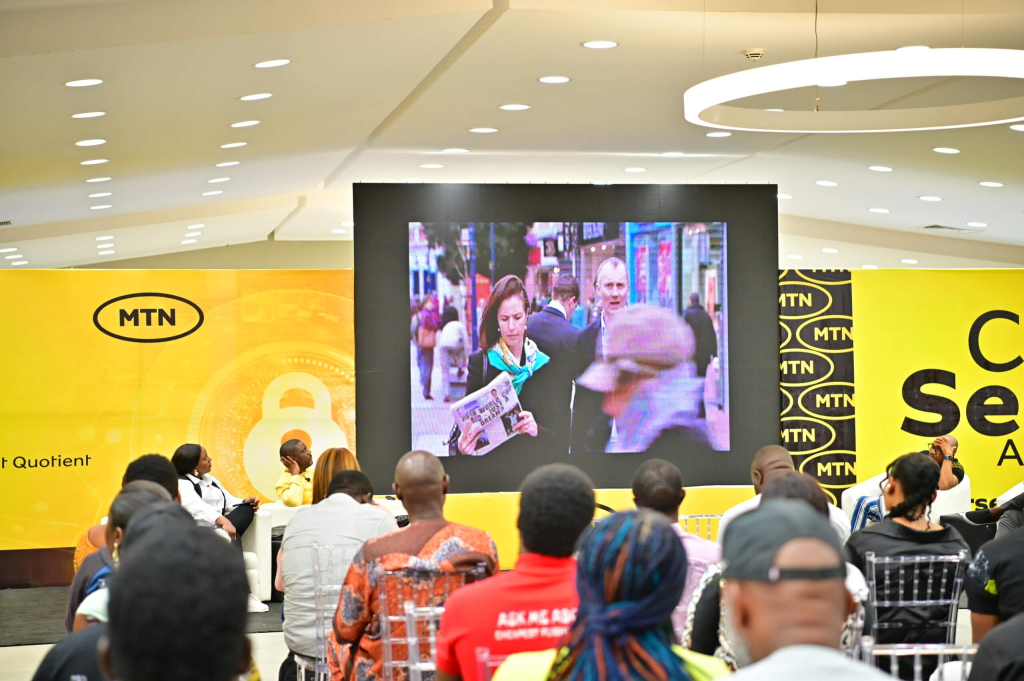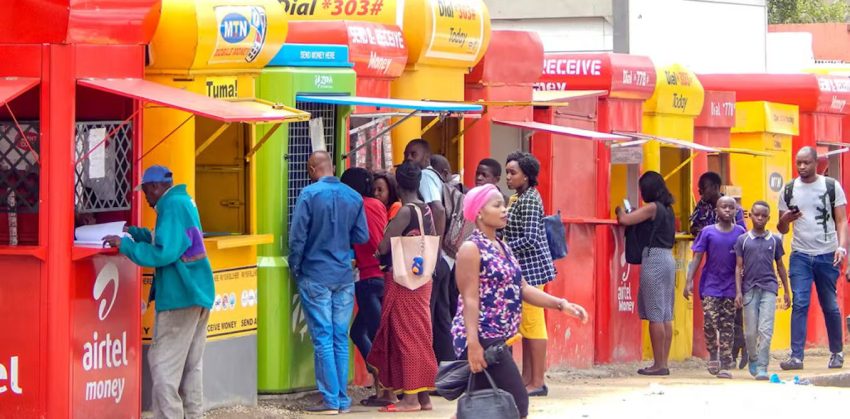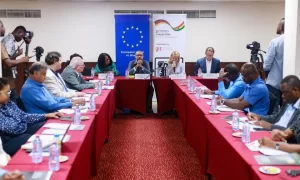By Kweku Bolton, Investigative Journalist
EMAL: detectiveeagle1@gmail.com
Financial Crime: Momo Fraud and illicit Financial Flow
Mobile money, often referred to as MoMo, is a financial transaction via mobile phones without requiring any bank account. Since its launch in 2009 by MTN, it has expanded financial access in developing countries. MTN was the first platform to enable share purchases with Momo in 2020.
MoMo’s popularity stemmed from its simplicity, speed, convenience, and affordability, with over 74 million registered users and 24 million active accounts. More than 80% of Ghana’s economy operates in the informal sector, where many individuals lack traditional bank accounts and rely on mobile money for financial transactions.
Financial Crime
The growth of Momo usage has also come with security challenges. In recent times however the benefit of Momo has been marred by fraudulent activities. Fraudsters use sophisticated techniques to commit financial crimes, including fraud, money laundering, and cybercrime.
The increasing security breaches are eroding the trust and confidence of customers, due to major financial losses in disrupting businesses, and harming economic productivity. Victims are also left distressed or in psychological trauma.

Fraudulent Schemes Targeting MoMo Users
Investigations revealed that these fraudsters have developed myriads of strategies to exploit Mobile Money users, withdrawing funds without authorization often using interoperability transaction.
These illicit financial activities have led to a sophisticated operation which leave numerous victims in distress.
The fraudulent scheme was exposed during an on-site investigation at MTN and Telecel offices, dozens of frustrated customers gathered to demand answers and recover stolen funds. One of the numbers used by these suspected fraudsters for phishing, vishing, and smishing is 0234520000 with a name Gifty Amo Bronya.
Among these suspected fraudsters is an account bearing the name Sylvester Oduro, with mobile numbers, 0549189483 / 0505112320 who allegedly holds multiple accounts with both MTN and Telecel. It was discovered that funds connected to unauthorized Mobile Money transactions were traced to a Telecel account reportedly linked to above mentioned individual Sylvester Oduro, with indications that the funds may have later been transferred to an unidentified primary bank account.
Shockingly, it is revealed that Odro siphons as much as GHC 50,000 daily—and within a month, he amasses about GHC 1,000,000 through fraudulent activities that have spanned several years. The matter has since been referred to the Criminal Investigation Department (CID) and other relevant authorities for further investigation and action.
Financial Crime: Victims Speak Out
Case 1: Kennedy Opong’s MoMo Fraud Experience
Herbal medicine practitioner, Mr. Kennedy Opong, suffered a major financial loss when GHC 8,740 was withdrawn from his MoMo account on January 30, 2025, without authorization.
The transaction exploited vulnerabilities within MTN’s system. Frustrated and unable to resolve the issue, he informed both MTN and telecel about the issue and reported it to the Criminal Investigation Department (CID) of the Ghana Police Service.
The loss left him in serious financial distress, as the stolen funds were intended for rent payments. Mr. Kennedy’s Mobile Money financial statement reportedly shows that a withdrawal was made via Telecel Push, linked to mobile numbers allegedly associated with an individual identified as Sylvester Oduro.
Case 2: Telecel Push Fraud
Other cases include a woman (Fatima Mustapha Hamza) whose MoMo account was illegally debited by GHC 3,500. An account with the name Macheal Aggrey through 0503295334 withdrew GHC 2,500 with Telecel Push, while another, identified as David Fianukor through 0503420873 initiated a loan in the name of the above-mentioned lady, withdrawing GHC 650 plus interest, which she is now required to pay.
Case 3: Family Abroad Regrets Sending Money via MoMo
Teacher Kofi, a victim in this case, received GHC4,000 from his family living abroad through his MoMo account. The funds were intended for purchasing building materials, such as cement, to renovate their home.
However, upon checking his account, he discovered that the money had been withdrawn without his authorization. He reported the incident to the MTN office, but no action was taken.
His family abroad now regrets sending him money via mobile money and this situation has led to misunderstandings between him and his relatives. As a result, they have refused to send him additional funds, accusing him of reckless spending.
Case 4: SIM Card Fraud and Unauthorized Withdrawals
Dr. Paul Appia Kunadu, renowned financial and economic analyst fell victim when his phone was stolen. Despite requesting MTN to block his SIM card, he later discovered that his MoMo funds had been illegally withdrawn by one Sampson Egekwe with a Ghana Card ID. ‘’Even after presenting a police report, MTN demanded a court order for resolution, a frustrating and time-consuming process. ‘’I was advised to follow up with a court order, which would have taken over a year to process and cost more than the amount lost’’.
Deceased Individuals’ Ghana Card IDs & SIM for defraud
It was discovered that, some deceased individuals’ Ghana Card IDs have fallen into the wrong hands, where they are being used to commit crimes and defraud people.
However, many fraudsters use other people’s Ghana Cards to register SIMs, making investigations difficult.
Financial Crime: Cybersecurity Expert’s Warning
Mr. Abubakar Isaka, President of the Cyber Security Experts Association Ghana, revealed that cyberattacks are widespread. While he managed to evade fraudsters, his close family members fell victim to similar schemes. He described the experience as “devastating not just financially, but psychologically.
Digital Fraud and MTN’s Cybersecurity Breach

A viral TikTok video on April 12, 2025, showcased a customer’s frustration after GHC 11,000 vanished from her MoMo account. The customer claimed MTN Ghana’s poor response left her waiting 15 working days with no resolution.
Following online outrage, MTN issued a statement, denying a technical breach and attributing the incident to social engineering a tactic where fraudsters trick victims into unknowingly revealing sensitive details like OTP codes, PINs, or verification links.
MTN’s Cybersecurity Breach and Data Leak
On April 25, 2025, MTN confirmed a cybersecurity breach affecting customer data in multiple countries. While assuring users that core systems, financial platforms, and MoMo wallets remained secure, MTN acknowledged an intrusion by an unidentified third party.
On May 4, 2025, the Cyber Security Expert Association Ghana (CSEAG) issued a statement demanding full transparency and accountability regarding the MTN breach.
The statement noted that the breach, which affected about 5,700 of MTN Ghana customers, is not just about number but threatens the personal data and trust of millions. CSEAG warned that a loss of confidence in the telecommunications sector could hinder Ghana’s digital development.
Economic Impact and Systemic Reform
Exclusive interview:
Renowned financial and economic analyst, Dr. Paul Appia Kunadu alluded that Fraud undermines businesses by eroding trust and discouraging enterprises from accepting mobile payments due to security concerns. This reluctance inconveniences consumers and has negative economic consequences.
Godwine Kwami Tamakloe, Chief Regulatory, Risk & Compliance Officer at Mobile Money Ltd., emphasized that the foremost impact is a loss of confidence. Fraud undermines trust in the system, discouraging citizens from using mobile money services and affecting the operation and growth of the sector. While mobile money has been growing steadily, such incidents could lead to a decline and negatively impact economic productivity.
Mr. Godwine Tamakloe said, ‘’his office has endorsed increased public education and awareness initiatives to help identify fraud, scams, and cyberattack strategies. Adding that if a customer loses even one GH₵1 due to fraud or a cyber scam, it is a blow to the company.”
Also, as new people are recruited while others are leaving the organization, strengthened staff checks, increased internal audits, mandatory fraud and ethics training, and the adoption of advanced technology enhance transaction monitoring and anomaly detection to reduce insider threats and improve overall security
Kwabena Anning, Charted Accountant, Management Consultant, added that the reputation and institutional legitimacy of mobile money operators may suffer. Reduced trust erodes confidence in these companies’ integrity, leading some businesses to distance themselves from mobile money transactions.
A Financial Consultant, Dr. Richard Atuhene highlighted that, in some cases, businesses openly refuse to accept mobile money payments, citing associated risks. Such practices can create inconvenience for consumers and hurt the economy.
Financial Crime: Should Victims Get Their Money Back?
Financial and economic analyst Dr. Paul Appia Kunadu, Governments must enforce stricter regulations and hold telecom operators accountable for lapses in their systems. Operators should face substantial penalties for failing to protect subscriber accounts. He advocates for refund of money and compensation for fraud victims, emphasizing the need for better security and accountability in mobile transactions.
Should Fraudsters and Scammers Be Traced And Arrested?
Mr. Abubakar Isaka, President, Cyber Security Association stated that Fraudsters can indeed be identified and apprehended, stressing that ideally, fraud detection mechanisms should enable authorities to trace offenders through registered SIM cards.
During a visit to Criminal Investigation Department–CID of Police Headquarters, law enforcement officials confirmed that more than 2,000 similar complaints have been reported, reinforcing the urgent need for systemic reform.
As fraudulent activities persist, telecom providers and regulators face mounting pressure to implement stronger security measures to protect customers. Superintendent Emmanuel Gyebi, Director of the Cybercrime Unit at the CID, stated that several fraudsters and scammers have been arrested.
Authorities are investigating the activities and accounts of suspected criminals and are also tracing others with the intent to prosecute them. Victims, including Mr. Opong and others, are demanding urgent intervention to recover stolen funds and enhance security protocols.
Financial Crime: Are Telcos Responsible for MoMo Fraud?

Mr. Abubakar, stated that, while fraud often results from user negligence, some cases involve internal malpractice. “Citing the Bank of Ghana’s 2022 and 2024 reports, it is indicated that more than 50% of financial fraud cases involve employees within financial institutions—commonly referred to as insider threats “An insider threat occurs when someone working within an organization facilitates fraud or other illicit activities.
‘’With over 50% of fraud cases in a year attributed to such threats, it is evident that individuals working in MTN, Telecel, or similar institutions are sometimes complicit in these schemes. ‘‘For example, I once encountered a case where a merchant number was activated, and within 30 minutes of activation, the merchant received calls from threat actors claiming money had been transferred to that account.
This raises questions about how these individuals obtained the merchant’s contact information, pointing to potential insider involvement’’.
Sophisticated method fraudsters use
It was disclosed that, sophisticated fraud tactics, social engineering, are widely used in Ghana and beyond. Fraudsters manipulate victims into revealing sensitive information such as OTPs, PINs, and passwords, often through deceptive Phishing links embedded with malicious software to steal sensitive data.
Other methods include Quishing, which involves emails with QR codes; Smishing, which employs text messages; and Vishing, which uses phone calls. Cybersecurity threats extend beyond Phishing, compromising mobile phones, laptops, and other digital devices through Hacking. Targeting companies, institutions and individuals.
Malware Attacks – Deploying harmful software to compromise systems.
Brute Force Attacks – Cracking passwords through repeated attempts.
SQL Injection – Exploiting vulnerabilities in databases.
Darkware: malicious software or tools designed for cybercrime. It often includes: Ransomware – Encrypts files and demands payment for decryption.
Spyware – Secretly collects user data.
Trojan Horses – Disguised as legitimate software but carry harmful payloads. Keyloggers – Record keystrokes to steal passwords and sensitive information.
Financial Sector Fraud in Ghana: Report Insights on Financial Crime
The Ghana Chamber of Telecommunications report indicates that, in the first quarter of 2025 alone, cyber fraud cost citizens 4.4 million Ghanaian cedis, double the amount recorded the previous year.
The Bank of Ghana’s 2023 financial stability review indicated that, financial sector recorded 13,451 fraud cases in 2023, with mobile money scams making up 20% (2,700 cases). Fraud-related financial losses rose from GH¢33 million in 2021 to GH¢56 million in 2022, with mobile money fraud alone exceeding GH¢10 million loses.
These losses could have been channeled into crucial development projects, including youth entrepreneurship programs for thousands of young people, contributing to human capacity development, poverty reduction, and unemployment alleviation. and healthcare facilities, to enhance economic stability and social welfare.
Conclusion
MoMo fraud remains a major threat in Ghana’s rapidly growing digital economy. Security experts stress vigilance, customer awareness, and technological improvements to curb money financial crime, money laundering and illicit financial flows.
As cybercriminals continue adapting their schemes, only proactive cybersecurity measures and strict enforcement can protect users from exploitation and also to arrest culprits promptly when cases are reported.
The project received support from the Thomson Reuters Foundation through the Media Foundation for West Africa, as part of its global work aiming to strengthen free, fair and informed societies. Any financial assistance or support provided to the journalist has no editorial influence. The content of this article belongs solely to the author and is not endorsed by or associated with the Thomson Reuters Foundation, Thomson Reuters, Reuters, nor any other affiliates.





